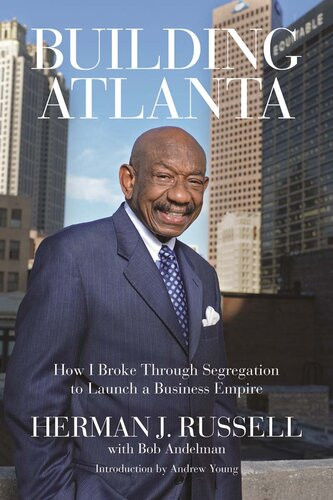

Most ebook files are in PDF format, so you can easily read them using various software such as Foxit Reader or directly on the Google Chrome browser.
Some ebook files are released by publishers in other formats such as .awz, .mobi, .epub, .fb2, etc. You may need to install specific software to read these formats on mobile/PC, such as Calibre.
Please read the tutorial at this link: https://ebookbell.com/faq
We offer FREE conversion to the popular formats you request; however, this may take some time. Therefore, right after payment, please email us, and we will try to provide the service as quickly as possible.
For some exceptional file formats or broken links (if any), please refrain from opening any disputes. Instead, email us first, and we will try to assist within a maximum of 6 hours.
EbookBell Team

5.0
68 reviewsBorn into a blue-collar family in the Jim Crow South, Herman J. Russell built a shoeshine business when he was 12 years old—and used the profits to buy a vacant lot where he built a duplex while he was still a teen. In the ensuing 50 years, Russell has continued to build and develop businesses, amassing one of the most influential and profitable minority-owned business conglomerates. In Building Atlanta, he shares his inspiring life story, revealing how he overcame racism, poverty, and a debilitating speech impediment to become one of the most successful African American entrepreneurs, Atlanta civic leaders, and unsung heroes of the civil rights movement. Not just a typical rags-to-riches story, Russell achieved his success through focus, planning, and humility and he shares his winning advice throughout. As a millionaire builder before the civil rights movement gained impetus and a friend of Dr. Martin Luther King Jr., Ralph Abernathy, and Andrew Young, he quietly helped finance the civil rights crusade, putting up bond for protestors and providing the funds that kept King's dream alive. Here he provides a wonderful, behind-the-scenes look at the role that the business community—which included black and white individuals working together—played in Atlanta's peaceful progression from the capital of the racially divided Old South to the financial center of the New South.